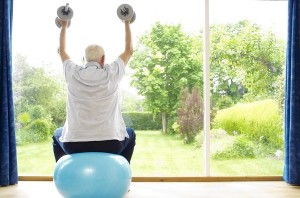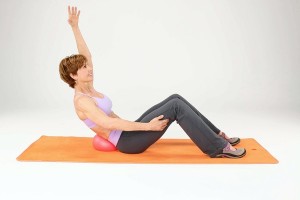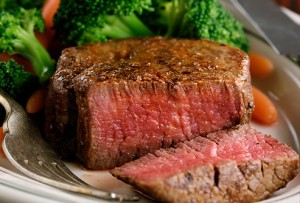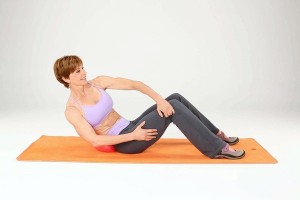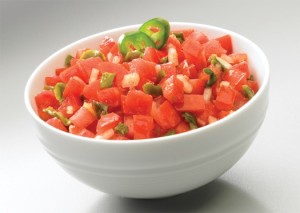March 31, 2012
Dumbbells can make you brainy
March 30, 2012
Fitness Tips: Building a strong core
Building a Strong Core
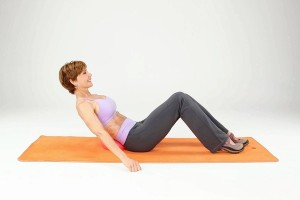 We rely on strong core muscles to stabilize the spine and help prevent injuries during everyday activities and sports. This exercise requires your abs to stay tight against the movement of the arms and legs.
We rely on strong core muscles to stabilize the spine and help prevent injuries during everyday activities and sports. This exercise requires your abs to stay tight against the movement of the arms and legs.
Sit upright on a flat, level surface with your knees bent and feet flat on the floor. Place a small, inflatable ball or firm pillow behind your waist. On an exhalation, create a C-curve with your spine, pressing the back of your waist against the ball. Maintain pressure against the ball as you bring your arms out to the sides and rest your hands on the floor. Pause for 2 seconds.
Keeping your abdominal muscles firm, raise your arms in front of your chest and extend your right leg until it’s straight. Pause for 3 seconds in this position. Remember to press your navel toward your spine to target your abdominal muscles. Lower your arms and then switch legs. Repeat 12 to 16 times, continuing to alternate legs.
March 29, 2012
Fitness Tips: Back stretch helps tighten abs
Back Stretch Helps Tighten Abs
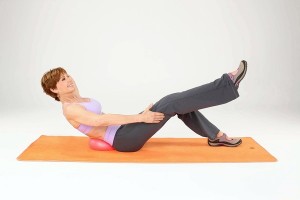
When it comes to training your abdominal muscles, it’s good to introduce new moves into your routine so you continue to “surprise” your muscles. Otherwise there’s a tendency for them to go on autopilot and you won’t get the maximum benefit of your efforts.
Sit upright on a flat, padded surface or mat with a small inflatable ball or firm pillow behind your waist. Place your feet hip-width apart with your knees bent and feet flat on the floor. To begin, place your left hand behind your head and your right hand behind your right thigh. On an exhalation, push your lower back against the ball and raise your right leg. Pause with your shin parallel to the ceiling.
Inhale as you roll back and extend your right leg. Remember to keep your abs contracted by pressing firmly against the ball or pillow. At first, just roll back halfway, and you don’t need to fully straighten your leg. Pause for 2 seconds, then exhale and roll back up to the start position. As you get stronger, place both hands behind your head and roll back a little more. Do 12 to 16 repetitions, then switch sides and repeat.
March 28, 2012
March 27, 2012
Fitness Tips: Curls for the well-armed
Curls for the well-armed
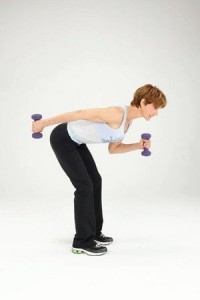
Use light weights in this exercise for a convenient, fast and effective way to work the fronts and backs of your arms at the same time. Remember to pull your abdominal muscles in to support your spine in this forward bend.
Stand with your feet about shoulder-width apart. Grasp a pair of 3- to 5-pound dumbbells, bend your knees slightly and lean forward so your torso is almost parallel to the floor. Keep your elbows next to the sides of your torso. Straighten your right arm behind you until your elbow is straight and next to your body. Simultaneously, bend your left arm to bring the dumbbell close to your left shoulder. Pause for 2 seconds in this position.
Repeat the same movement again, but this time straighten your left arm behind you and bend your right arm forward. Continue to alternate arms until you have completed 32 biceps curls and 32 triceps extensions with each arm. Focus on keeping your upper arms close to your torso as you perform this move. Stand up, rest for 15 seconds and repeat two more sets.
March 26, 2012
The Leanest Cut of All
Is it possible to eat beef on a regular basis and not get beefy in the process? Absolutely, says an article that appeared in a supplement to the October 2005 issue of Tufts University Health & Nutrition Letter. The trick is to select the right cut of beef and to exercise portion control.
Here’s a look at 10 of the leanest cuts, which, according to the National Cattleman’s Beef Association, contain on average only 1 more gram (g) of saturated fat than a skinless chicken breast per 3-ounce serving:
1. eye round (1.4 g saturated fat, 4 g total fat)
2. top round steak (1.6 g saturated fat, 4.6 g total fat)
3. chuck mock tender steak (1.6 g saturated fat, 4.7 g total fat)
4. bottom round (1.7 g saturated fat, 4.9 g total fat)
5. top sirloin (1.9 g saturated fat, 4.9 g total fat)
6. round tip (1.8 g saturated fat, 5.0 g total fat)
7. 95% lean ground beef (2.4 g saturated fat, 5.0 g total fat)
8. brisket (flat half) (1.9 g saturated fat, 5.1 g total fat)
9. shank crosscuts (1.9 g saturated fat, 5.4 g total fat)
10. chuck shoulder roast (1.8 g saturated fat, 5.7 g total fat)
—
original article from IDEA Fitness
March 24, 2012
Army Steps Up Efforts to Get New Troops Fit
Shape Up, Soldier!
Soldiers can still find pancakes on the chow line at the U.S. Army’s Fort Leonard Wood training facility in Missouri. But now they’re made with whole-grain batter — adding more fiber and protein.
The new focus on nutrition is part of a ‘Fueling the Soldier’ initiative that aims to teach soldiers to make healthier choices during military training and in combat.
“The Army must treat our soldiers as tactical athletes to improve not only physical training but also trying to get them to adapt the right nutritional aspects to help prepare them for the battlefield and for their life,” Lt. Gen. Mark Hertling said in a statement.
Hertling is overseeing an overhaul of physical readiness training. In fact, the Army is tossing out the old training manuals, and taking a new approach to basic training.
Gone are the long endurance runs, which officials say can lead to injuries in new recruits who aren’t accustomed to the mileage.
Instead, soldiers will be coached by trainers to do a whole range of exercises that build core strength, flexibility and endurance. Training will be tailored to a soldier’s level of fitness.
A new cafeteria Fort Leonard Wood was also unveiled today. As soldiers walk down the cafeteria line, they see foods marked with red, yellow or green labels.
Green marks high-performance foods, and posters nudge the soldiers to “Go For Green” frequently.
In addition, the cooks have turned off fryers and started baking more entrees. They’re also adding lots of ‘nutrient-dense’ menu options made from fresh food.
To help reinforce these messages, drill sergeants will give one-hour courses in “performance nutrition.” Maybe Shots can invite them over for dinner with our kids?
Why the change in approach? Well, army recruits mirror the general population, which is trending toward the ‘heavier’ side—to put it politely.
More than 9 million Americans of prime recruiting age are too heavy to join up, according to Mission: Readiness, a group of retired senior military officials pushing for better fitness for young people.
Enlisted men and women are no exception. A 2008 Department of Defense survey found that 38 percent of people enrolled in the military health system were overweight or obese.
The new training plan incorporates physical therapists and sports trainers at the unit level to promote proper techniques and injury prevention
If you’d like to see how the Army is putting its soldier-as-athlete model into action, you can download a free iPhone app called “Army Physical Readiness Training.” It was developed by programmers at the U.S. Army Center of Excellence at Fort Gordon, Ga.
The Army plans to make the changes at its other training installations in Fort Sill, Okla.; Fort Benning, Ga.; Fort Jackson, S.C.; and Fort Knox, Ky. in the coming months
—
Original Article from NPR Health
March 23, 2012
Low-Fat Beats Low-Carb For Heart Health
For people at risk for hypertension, reducing fat intake may be key to protecting the heart. According to a study published in the American Heart Association’s journal Hypertension, a low-fat diet is more effective than a low-carbohydrate diet in reducing the risk of developing hypertension, a precursor to cardiovascular problems such as atherosclerosis.
When the two types of diets were compared in apparently healthy participants, the low-fat diet was the winner at improving blood pressure markers, such as blood flow in the arteries. This led the researchers to conclude that low-fat diets “may confer greater cardiovascular protection” than low-carb diets.
—
source: IDEA Fitness
March 22, 2012
Hot Salsa Tip
Did you know that salsa has surpassed ketchup as America’s favorite condiment? Salsa can spice up all kinds of bland meals. Stir in a jar of your favorite salsa to add some zing to a pot of kidney, white, pinto, red or black beans; then top with a dollop of sour cream for a unique, high-fiber side dish.
